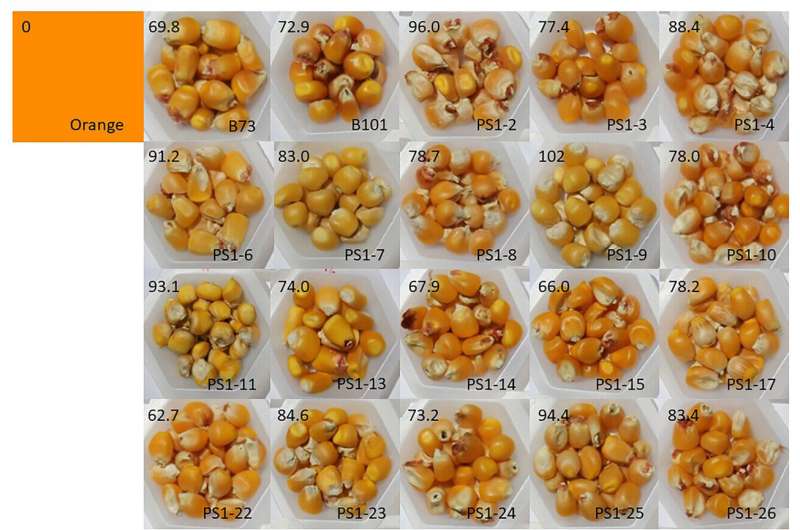
Experimental lines of field corn developed by a team of Agricultural Research Service (ARS) and university scientists will usher in new commercial hybrids offering high-methionine grain.
The advance, reported in a recent issue of Crop Science, will be especially welcome news for organic poultry producers whose birds require dietary formulations of the amino acid to ensure optimal growth, health and production of meat and eggs.
As one of nine essential amino acids and only two that contain sulfur, methionine helps kick-start the synthesis of proteins and is a key component of many tissues, including bone, muscle, ligaments, organs, skin and feathers in poultry. Methionine also underpins important metabolic, digestive and immune system functions.
In organic production systems where pasture is available, free-ranging chickens and other poultry can naturally acquire methionine from eating worms, insects and certain plants. However, supplementing their diets with synthetic methionine in corn-based feed is necessary to ensure the birds get adequate amounts of the amino acid.
Organic producers can do this under a federal regulatory exemption that permits a maximum use of two pounds of synthetic methionine per ton of feed for chickens and three pounds per ton for turkeys, ducks and other types of poultry. Meanwhile, research is underway, including this project, to find natural alternatives whose cost and availability promise to supplant the need for synthetic methionine altogether.
Corn, for example, is a major ingredient in current feed rations; however, grain from commercially grown hybrids contains very little methionine. Fortunately, there are sources of variability for the trait in germplasm collections that can be teased out with the right tools.
Genetic engineering offers one approach; however, transgenic crop varieties aren't permitted in organic production systems. To address this issue, ARS plant geneticist Paul Scott and colleagues combined the use of two conventional plant breeding methods—namely, doubled haploid induction and recurrent selection.
Click here to see more...